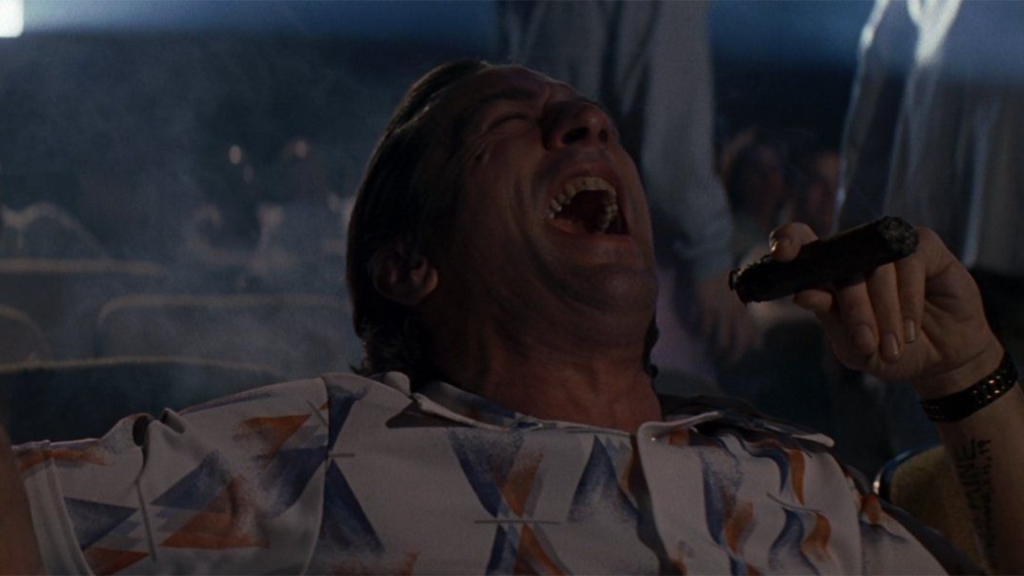A high probability exists that the HBO Max many people have come to enjoy will be discontinued in the near future. In spite of the platform’s reputation for offering a wide variety of movies, recent reports indicate that it has began eliminating several streaming-only films without warning.
With Warner Bros. Discovery’s merger wreaking turmoil, the streamer is reportedly planning a much larger purge of movies and television shows. The purging of six titles is just the beginning.
No matter how wonderful or bad a movie you think was recently altered is, in the end, meaningless. The elimination of movies designed for streaming platforms creates a hazardous precedent for streaming libraries.
For the most part, movies are passed from one streaming service to the next based on their distribution agreement.
However, what happens to the movies if a platform goes offline without warning? ‘ Some movies will be simpler to find than others, but streaming exclusives and hard-to-find films have the potential to slide through the cracks and become unavailable.
Consider revisiting a practice that has been practically wiped out by streaming and digital-on-demand platforms: purchasing 4K Ultra HD and Blu-ray discs, DVDs, and even VHS copies of your favorite movies and shows.
Also Read: Brittney Griner Controversy: Brittney Griner Is Being Criticised for Her Confinement!
Nothing Digital Is Really Owned, or Even There

My knowledge of streaming and VOD platforms is limited, and I will not pretend to be an expert. However, even the most heavily-coded and secure platforms are susceptible to substantial modifications, which is something to keep in mind.
It’s like a store or restaurant that’s receiving a makeover, only that you can end up losing money and purchases as a result of the work being done.
When it was reported in July that German and Austrian PlayStation customers would no longer be able to access their purchased Studiocanal-distributed movies, it felt like a terrible foreshadowing of the HBO Max issue.
It was a bit of a shock when this news was made because, if you buy a movie, doesn’t that make it yours forever?
The answer is no. In an essay published in August 2021, the Wirecutter team emphasized that you don’t actually own any digital movie you buy.
The only thing you own is the ability to view it. Digitally acquired movies have the same ownership perspective as NFTs, unfortunately.
It is theoretically possible to remove any digitally acquired movie from its hosting platform. In the case of Studiocanal and select PlayStation stores, it’s impossible for consumers to regulate whether or not a host firm decides to remove a title.
Even worse, according to Wirecutter, this potential is included in numerous VOD providers’ terms and conditions, meaning the customer has already accepted to the prospect of this purge occurring.
Also Read: Joe Rogan’s Controversy with Spotify Isn’t Over Yet| Check Here the Whole Story
The Quality Problem

In spite of a rise in bitrates (the amount of data that can be processed by screens) on streaming platforms like Disney+, the quality of movies and TV shows is still lacking.
Most likely, this is due to a lack of consistency in picture quality caused by growing bitrate capacity on the hosting systems for these services, notably streaming websites.
When it comes to tangible media, like 4K Ultra HD DVDs, this isn’t always the case. When a movie and its supplements are burned to a disc, they remain there in perpetuity and don’t require any further maintenance.
As a result, printed documents are presented in the best possible quality because they do not have to deal with variable bitrates.
A physical media collector told Insider in 2021 that “seeing a film on a 4K disc will invariably look better than downloading the same movie in 4K on a streaming platform.”
What the Film Team Says

Many of the authors at /Film have some sort of tangible media collection, which is probably not unexpected.
They all have their own reasons for preferring physical versus streaming or VOD, no matter how large or tiny the collection is.
However, the social component of acquiring physical media shone out in their answers as a significant aspect outside of securing ownership and improved picture quality.
Danielle Ryan, a writer, said she enjoys lending her possessions to others. A copy of the film or television show that I recommend to my friends and family is the best way for me to ensure they don’t have to go out and find it on their own.
Editor Ethan Anderton said, “I just prefer the visual portrayal of my collection.” “When someone enters my house and sees my bookcases filled of movies, they’ll get a sense of how much I care about the medium. It’s also a good way to start a conversation.”
However, perhaps the most essential statement came from editor Jacob Hall, who simply stated, ” “An actual DVD disc reminds me that there’s no such thing as “content.” It’s a piece of art.”
In today’s environment, this couldn’t be more true than it already is. Streaming services should approach movies and TV shows as art and not just as “material” to be yanked if they don’t draw a specific number of subscribers.
Though they may degrade over time, CDs and DVDs at least maintain the highest level of quality and care when transporting these artistic creations.
Buying tangible media is essential to the survival of the arts, and it needs to happen quickly.
It’s impossible to predict how many pieces of material will be lost to database machinery if this isn’t done.
To know more updates about entertainment information please checkout landscapeinsight.com
Andrew Walker is the Chief Editor at “Landscape Insight” and has a background in journalism. He has been writing for Landscape Insight on a wide range of Entertainment topics including Celebrity Net Worth, Controversies, Web Series & Movie Updates, etc. When he isn’t writing, Andrew enjoys playing video games and baseball. You can reach Andrew at – [email protected] or by Our website Contact Us Page.







